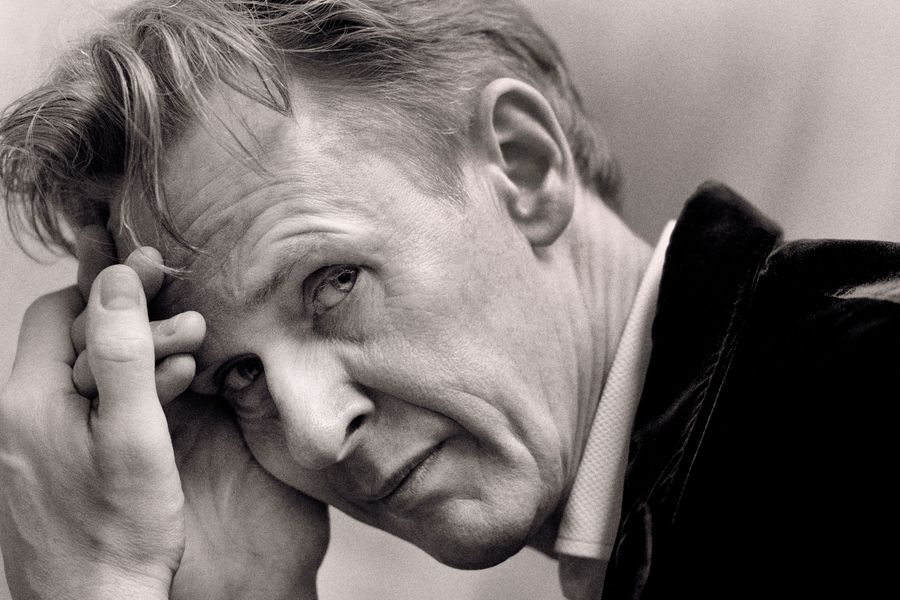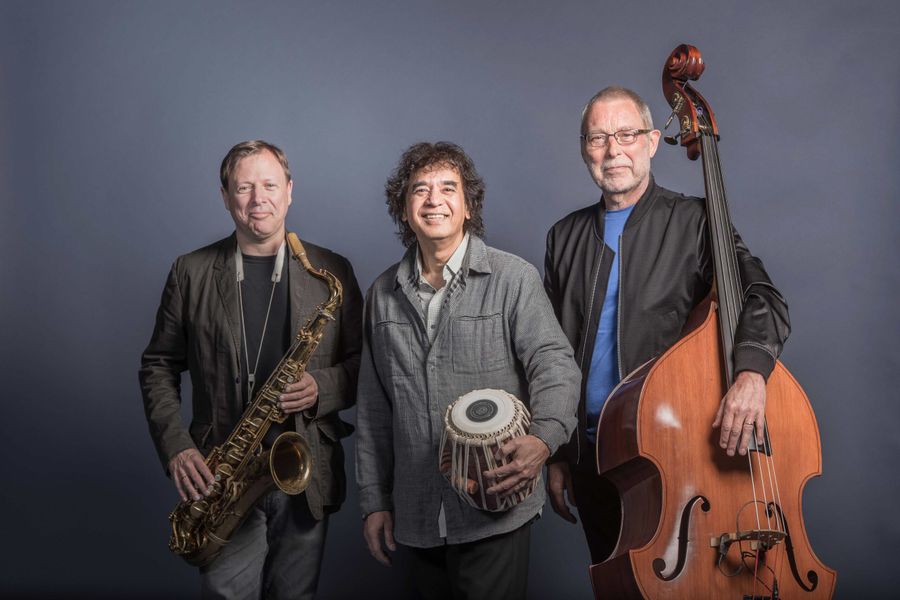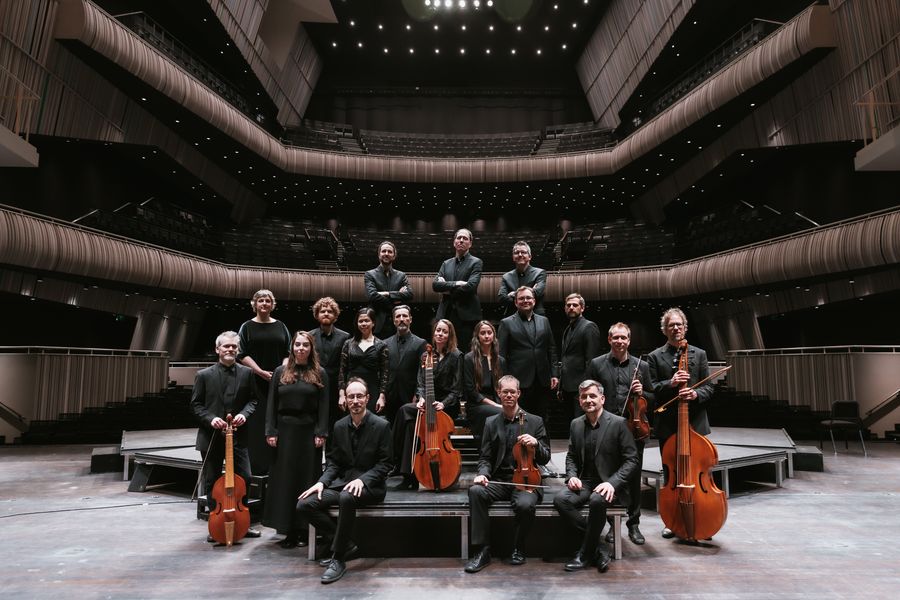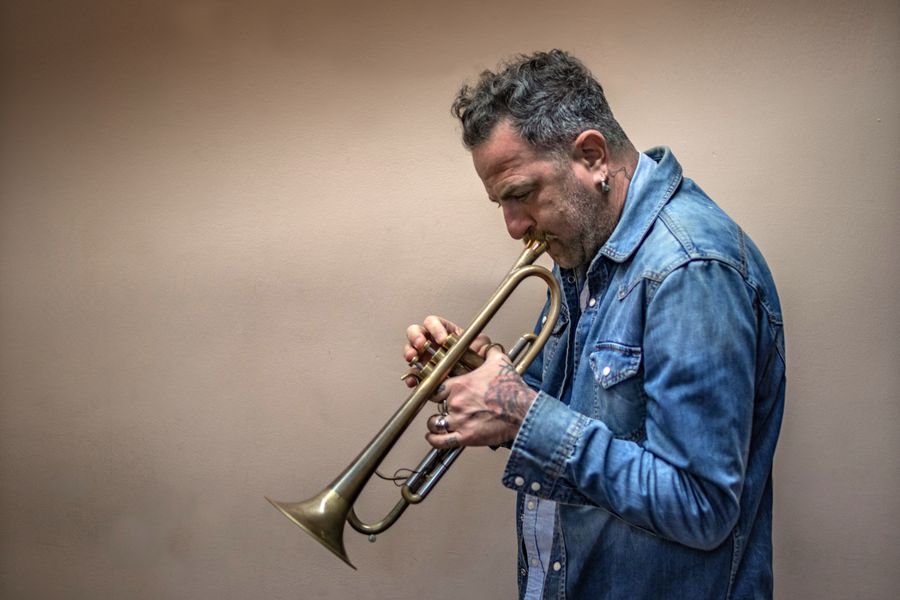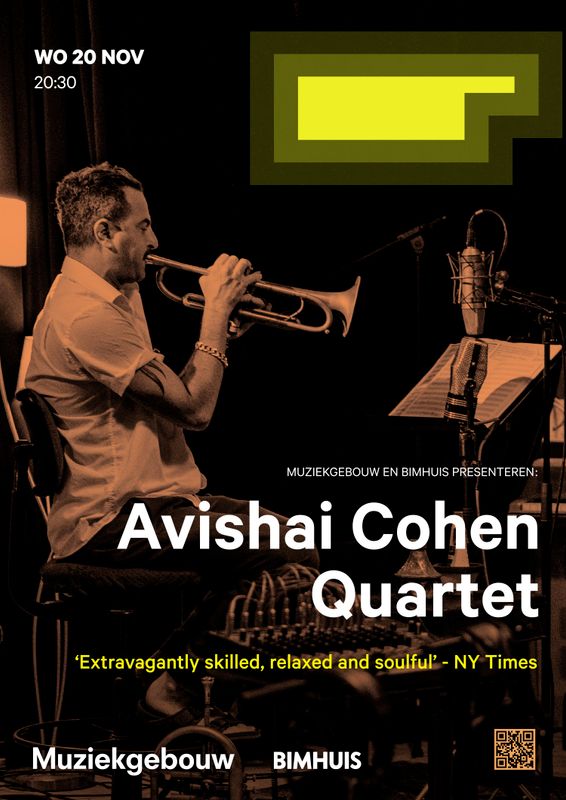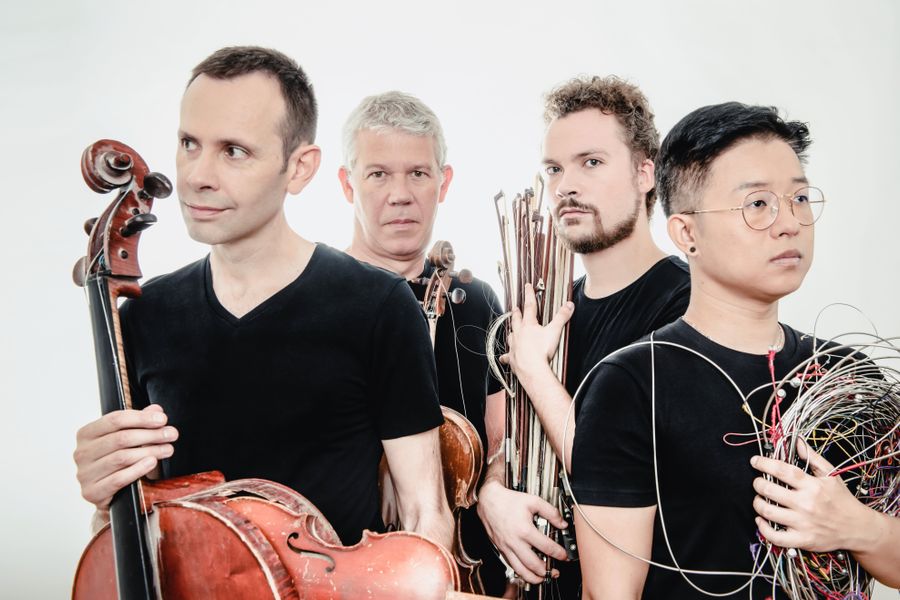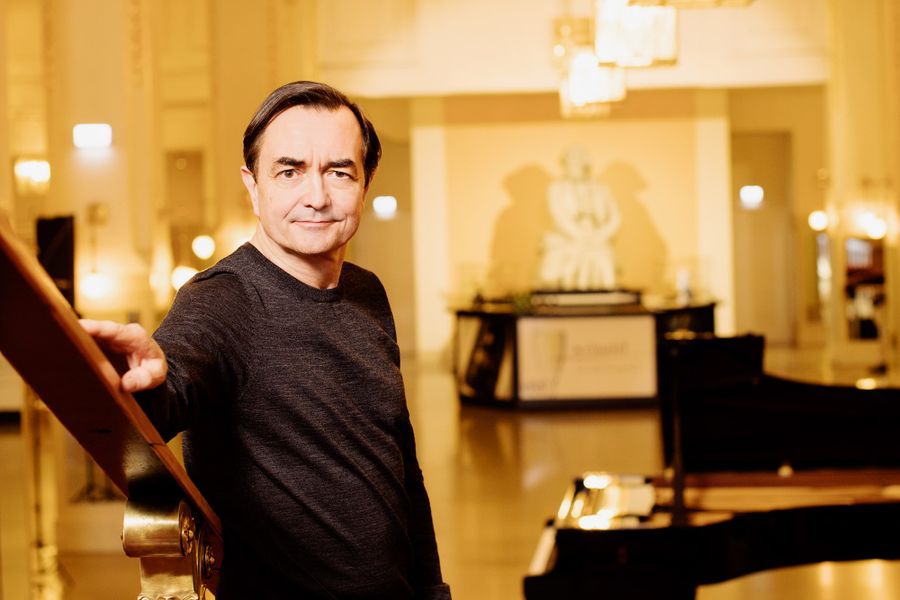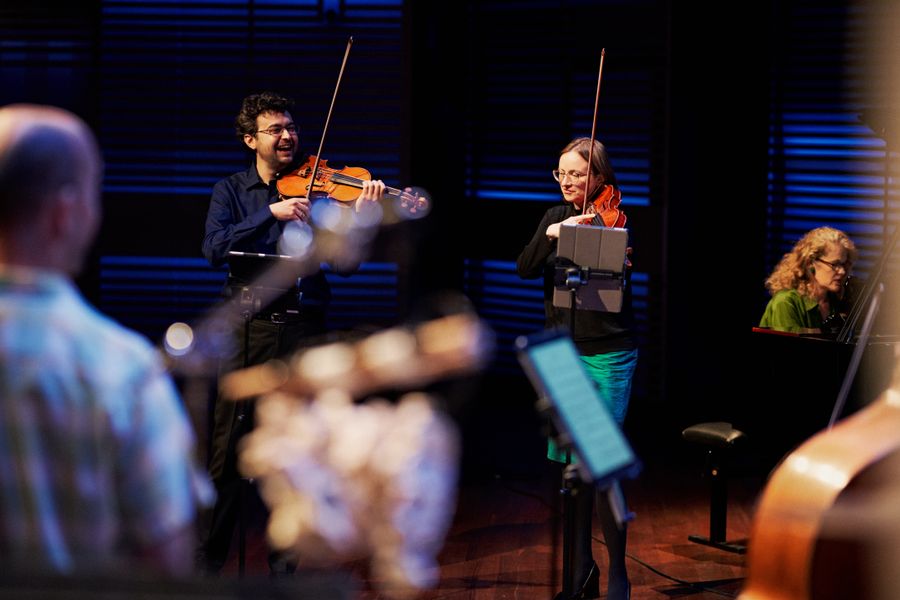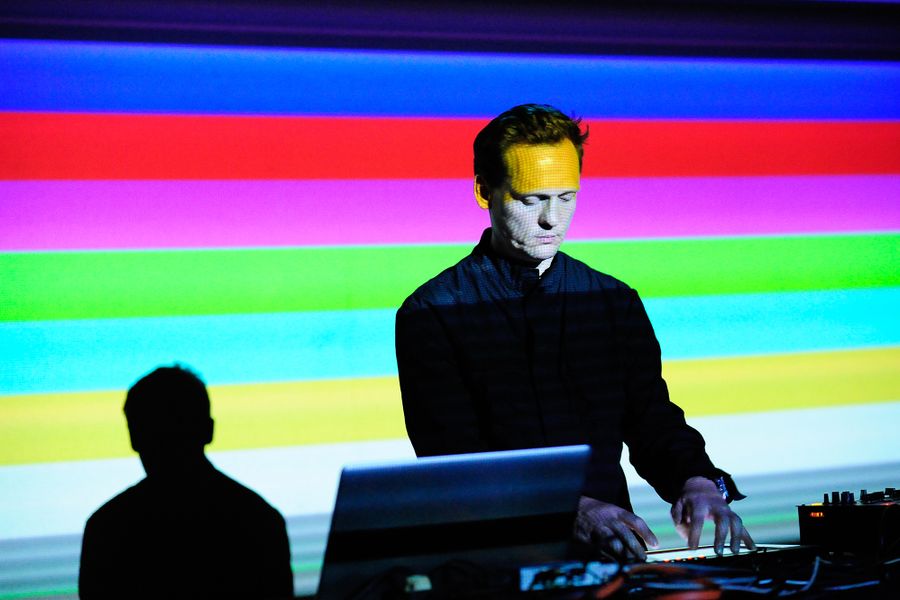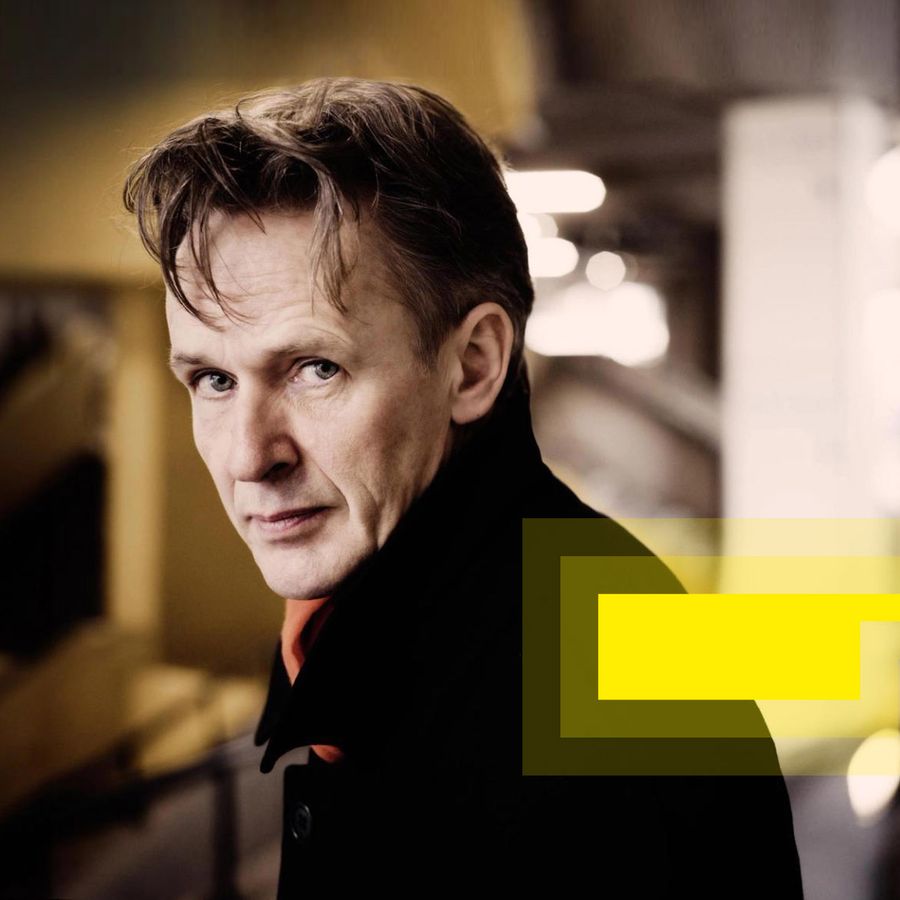
Highlights
November 2024
The month of November is full of musical highlights! We have selected special concerts that showcase the best in different genres.
Like a 3-day tribute to the great musical innovator Arnold Schoenberg by Pierre-Laurent Aimard and Quatuor Diotima, among others. Or how about jazz musicians like Avishai Cohen, Dave Holland and Chris Potter, all of whom are on our stage this month? In the vocal genre, you can enjoy world-renowned tenor Ian Bostridge and the phenomenal baroque ensemble Vox Luminis, among others.
Agenda
-
Stories from England
Oxalys + Ian BostridgeEnglish Romanticism from the Belle ÉpoqueHolst, Vaughan Williams, Warlock, White
Wed 27 Nov 2024British tenor Ian Bostridge is known worldwide as one of the most fascinating singers of our time. ‘He is a story-teller and a singing-actor par excellence, with an immense range of emotional expression’, wrote the London Evening Standard about this PhD historian who studied at Cambridge and Oxford. Together with Belgian chamber music ensemble Oxalys, Bostridge embarks on a journey through the lovely landscapes of his native England with English music from the Belle Époque by Ralph Vaughan Williams, Peter Warlock, and Gustav Holst.
Around the year 1900, skirts swished across European ballrooms, and Mata Hari danced in the Parisian salons frequented by literary giants like Oscar Wilde and musical innovators like Claude Debussy. In the music of conservative England, where everything is always done differently, the serene atmosphere of rural tranquillity set the tone. Ian Bostridge has the ideal golden serrated timbre for the British romanticism of Gustav Holt and Ralph Vaughan Williams. He also sings songs by the lesser-known Peter Warlock, who was inspired by music from the time of Queen Elizabeth I, but also embraced Debussy’s harmonies.
Programme booklet (Dutch)Program
Gustav Holst Seven Scottish Airs
Ralph Vaughan Williams Liederen uit Along The Fields en The Blake Songs
Peter Warlock The Curlew
Felix White The Nymph’s Complaint for the Death of her Fawn
Ralph Vaughan Williams On Wenlock EdgeCredits
Oxalys
Ian Bostridge tenor -
Crosscurrents Trio
Dave Holland, Chris Potter + Eric HarlandJazz and Indian music titans meet
Sun 24 Nov 2024The star power is evenly distributed in this trio. Previously, these three crowd-pullers explored the boundaries of Indian music and jazz, with unprecedented virtuosity. Now, as a trio, they go to the core, beyond raga and swing, with deep and detailed interaction and a refined musical language of their own.
Zakir Hussain, a giant in the world of Indian percussion, lays the foundation with his propulsive tabla playing. Dave Holland, the British bassist who played with Miles Davis, provides direction with his clear lines. Chris Potter demonstrates with his exceptional technique and inexhaustible inventiveness that he is one of the great tenor saxophonists in American jazz of the past decades.
Eric Harland replaces Zakir Hussain
Unfortunately, Zakir Hussain is unable to tour with the Crosscurrents Trio due to medical reasons. Dave Holland and Chris Potter have decided to continue with the tour and will be joined at the Muziekgebouw by drummer/percussionist Eric Harland. The award-winning drummer, Harland has previously collaborated with artists such as Dave Holland and Terence Blanchard. We wish Zakir Hussain a swift recovery and thank you for your understanding!Ticket buyers will receive notification
I.s.m.

Credits
Crosscurrents Trio:
Dave Holland double bass
Chris Potter tenor saxophone
Eric Harland percussion -
Ein deutsches Barockrequiem
Vox Luminis + lecture Jan Van den BosscheThe emotions and soul in baroque musicGeist, Förtsch, Hammerschmidt, Schein
Fri 22 Nov 2024Something original is happening here. The texts may be familiar, the composers are not. Lionel Meunier, artistic director of Vox Luminis, delved into the texts of Johannes Brahms’ Ein deutsches Requiem and searched for composers who had already set them to music in the Baroque period. Classic Bible texts with a fresh, adventurous sound by almost forgotten Baroque composers such as Thomas Selle, Andreas Scharmann and Tobias Michael. ‘Vox Luminis in its purest form, pure vocal goldsmithery’, wrote the Spanish music site Scherzo.
Vox Luminis has been at the top of the European baroque scene for years. Meunier and his crack team consistently deliver razor-sharp performances. In this ensemble, Vox Luminis consists of ten singers and six musicians: two violins, three violas and one organ. Ein deutsches Barockrequiem: an old and new requiem, music animated by the emotions of the Lutheran Baroque.
‘The way the programme has been put together deserves the highest praise. Vox Luminis strikes again. A special recommendation is inevitable.’ - MusicWeb International
‘Uniformly moving and instructive, the more so because the performances are exceptional.’ – The Sunday Times
7 p.m. / Lecture Early Music by Jan Van den Bossche
The world before Bach
In the famous poem The silence of the world before Bach, Swedish poet Lars Gustafsson reflects on the emptiness that preceded Bach’s monumental creative power. But the world before Bach was not silent at all, in Germany or elsewhere. There was music, lots of beautiful music. Bach didn’t appear out of thin air; he wasn’t an alien who descended on the world and enriched us with his music. He was firmly rooted in an ancient and international tradition, with influences from Amsterdam to Venice. This lecture explores the rich and multi-coloured musical landscape into which Bach was born.
Programme booklet (Dutch)Program
19.00 / Early music lecture by Jan Van den Bossche (in Dutch)
20.15 / Main programme
A newly composed requiem featuring motets by Christian Geist, Johann Philipp Förtsch, Andreas Hammerschmidt, Johann Hermann Schein and others
Andreas Scharmann Gedenke, Herr, wie es uns gehet
Thomas Selle Sinfonia Und da der Sabbath vergangen war
Johann Hermann Schein Selig sind, die da geistlich arm sind
Christian Geist Die mit Tränen säen
Tobias Michael Die Erlöseten des Herren
Wolfgang Carl Briegel Herr lehre doch mich
Andreas Hammerschmidt Ach wie gar nichts sind alle Menschen
Heinrich Schwemmer Der Gerechten Seelen sind in Gottes Hand
Johann Hermann Schein Wie lieblich sind deine Wohnungen
Johann Hermann Schein Ich will schweigen
Andreas Hammerschmidt Der Tod ist verschlungen
Johann Philipp Förtsch Selig sind die TotenCredits
Vox Luminis
Lionel Meunier artistic direction -
Avishai Cohen Quartet
Four jazz heroes at the top of their game
Wed 20 Nov 2024The sound of trumpeter Avishai Cohen is instantly recognizable. Yet he keeps looking for new ways to express himself and to compose. He is a master at bringing different worlds together harmoniously. This is why he has been compared to the greatest jazz musicians in history by the American press: ‘Like Miles Davis, he can make the trumpet a vehicle for uttering the most poignant human cries’, wrote JazzTimes.
The Avishai Cohen Quartet's new album Ashes to Gold was recently released on the quality label ECM Records. Recorded in November 2023, a month after the start of the horrific war in Israel and Palestine. It is his call for a cease-fire.
Ashes to Gold: the title imagery is drawn from the old Japanese art of kintsugi, the ceramic repair work “where you take the old and the broken and try and put the pieces back together, to make something golden and beautiful from the fragments,” says Avishai Cohen. “In a way I think that’s where we dwell. Our reality. And although this music can’t help but reflect the times, it also – in my wishful imagination - has some hope to it. At least, it is not only dark.”
I.s.m.

Credits
Avishai Cohen Quartet:
Avishai Cohen trumpet
Ziv Ravitz drums
Barak Mori bass
Yonathan Avishai piano -
Schoenberg, Berg & Kortekaas
Quatuor DiotimaAdventurous quartets from a century ago, and from todaySchoenberg, Berg, Kortekaas
Sat 16 Nov 2024Quatuor Diotima breathes contemporary music. The French quartet has a special connection with Arnold Schoenberg: several years ago, at the Muziekgebouw, Diotima played all four of the great innovator’s string quartets in one weekend. This time they combine Schönberg’s Third String Quartet with the legendary Lyric Suite by his star student Alban Berg. And they will perform the new and very first string quartet by Bram Kortekaas, one of the most interesting Dutch composers of his generation.
Schoenberg wrote his Third String Quartet in 1927, when he had already developed his twelve-tone technique. He modelled it on a quartet by Schubert, although the sound world is obviously completely different. Alban Berg, Schoenberg’s student, who years prior had written the very first atonal string quartet, composed his evocative Lyric Suite in the same period. With its expressive melodies and dramatic sweep, this string quartet evokes the spirit of opera, as noted by some musicologists, including Adorno. Decades after the composer’s death, and the death of his mistress, researchers learned that Berg’s work was inspired by his secret love affair with the wife of a friend.
Programme booklet (Dutch)Program
19.45 uur / Entreehal / Voorprogramma / by the Amaris Kwartet
Ludwig van Beethoven I. Allegro from String Quartet No. 720:15 / Grote Zaal / Main programme
Arnold Schoenberg String Quartet No. 3
Bram Kortekaas Allarme enigmatico
Alban Berg Lyric SuiteCredits
Quatuor Diotima:
Yun-Peng Zhao violin
Léo Marillier violin
Franck Chevalier viola
Alexis Descharmes cello -
Schoenberg's laboratory
Pierre-Laurent AimardUnique journey through musical innovations on the pianoSchoenberg, Skrjabin, Brahms, Schumann, Stravinsky
Fri 15 Nov 2024Arnold Schoenberg was the greatest musical innovator of the 20th century. According to pianist Pierre-Laurent Aimard, each new piano piece of his heralded a new phase: on the piano, Schoenberg developed compositional techniques that he then applied in other works. This imaginative program pulsates with the spirit of those innovations, interwoven with refreshing work from other composers. Aimard, leading authority on modern piano music, sheds light on his repertoire choices. A unique opportunity to hear Schönberg’s complete piano oeuvre, at the very highest level.
Schoenberg’s originality is clearly not reflected in his titles, which are all rather straightforward and functional. But his notes were without exception groundbreaking. The set of three pieces for solo piano Drei Klavierstücke (1909) is one of the earliest examples of atonality, and in Suite für Klavier (1921) and Fünf Klavierstücke (1920-23) Schönberg applied his twelve-tone technique for the first time. Aimard combines them with music by Schönberg’s antipode Igor Stravinsky. Aleksandr Skrjabin experimented with chromaticism in his own unique way.
Programme booklet (Dutch)Program
Arnold Schoenberg Drei Klavierstücke
Alexander Scriabin Piano Sonata No. 9
Arnold Schoenberg Sechs kleine Klavierstücke
Robert Schumann Gesänge der Frühe
Arnold Schoenberg Fünf Klavierstücke
Johannes Brahms Intermezzi Op. 118 Nos. 1, 2 and 4
Arnold Schoenberg Klavierstücke op. 33a & op. 33b
Igor Stravinsky Piano Rag Music
Arnold Schoenberg Suite Op. 25Credits
Pierre-Laurent Aimard piano
-
Schoenberg, Berg & Knussen
Asko|Schönberg, Pierre-Laurent Aimard, Joseph Puglia + Katrien BaertsWonderful instrumental mastery by three geniusesSchoenberg, Berg, Knussen
Thu 14 Nov 2024Who is afraid of Arnold Schoenberg? His popular Kammersinfonie No. 1 is an early masterpiece that is clearly rooted in the 19th century, yet beneath it whispers of tonal unrest begin to stir. Asko|Schoenberg honours its namesake tonight with a programme in which superior instrumental mastery is the common denominator. Listen closely as Schoenberg’s meticulous craftsmanship finds new life in the music of his students Alban Berg and Oliver Knussen (1952-2018), a dear friend of Asko|Schönberg and the Muziekgebouw.
Schoenberg chose an unusual ensemble for his chamber symphony, with ten wind players and only five string players. This rearrangement of ensemble relationships, pioneered by Schoenberg, found enthusiastic followers, including Alban Berg. His finely crafted Kammerkonzert requires an ensemble of no less than thirteen wind instruments, with the piano and violin as soloists. Berg wrote the work on the occasion of Schoenberg’s fiftieth birthday. The closing piece of the programme is the deeply moving, wonderful requiem Songs for Sue (2006), which Knussen composed after the death of his wife.
Programme booklet (Dutch)Program
Arnold Schoenberg Kammersinfonie No. 1
Oliver Knussen Songs for Sue
Alban Berg KammerkonzertCredits
Asko|Schönberg
Michael Wendeberg conductor
Pierre-Laurent Aimard piano
Joseph Puglia violin
Katrien Baerts soprano -
Xerrox Vol. 4
Alva Noto + Ensemble ModernDigital and acoustic worlds merge in audiovisual experienceAlva Noto
Wed 13 Nov 2024Nicolai, one of the most influential figures in the electronic music scene under his alias Alva Noto, is praised for his concise music based on digital technology. Ensemble Modern presents a sweeping instrumental rendition of Xerrox Vol. 4, an album that Nicolai himself considers to be one of his most emotionally resonant works. Sound, image and light create an immersive experience in this second collaboration between the composer and the out-of-the-box ensemble.
Alva Noto’s series Xerrox is based on the endless reproduction and manipulation of digital source material. A departure from his earlier focus on abstraction, Nicolai’s music now embraces melody, a change that can be traced back to his collaboration with Japanese synth-pop legend Ryuichi Sakamoto. Nicolai and Sakamoto collaborated with Ensemble Modern on their project utp_ (2007). Ensemble Modern is a contemporary music ensemble that is known for its pioneering works with classical instruments.
Program
19.15 uur / Foyerdeck 1 / Inleiding
By Michel Khalifa20.15 uur / Grote Zaal / Hoofdprogramma
Alva Noto Xerrox Vol. 4 (Ensemble Modern Version)
Credits
Ensemble Modern
Alva Noto electronicsSimon Mayer video
Matthias Rieker light design
Norbert Ommer sound design





